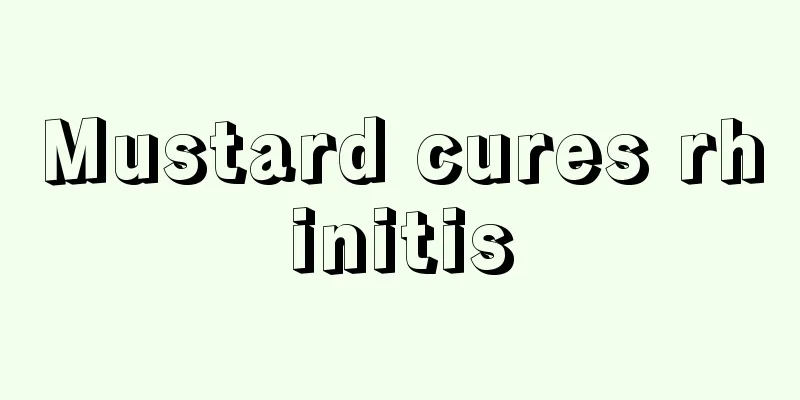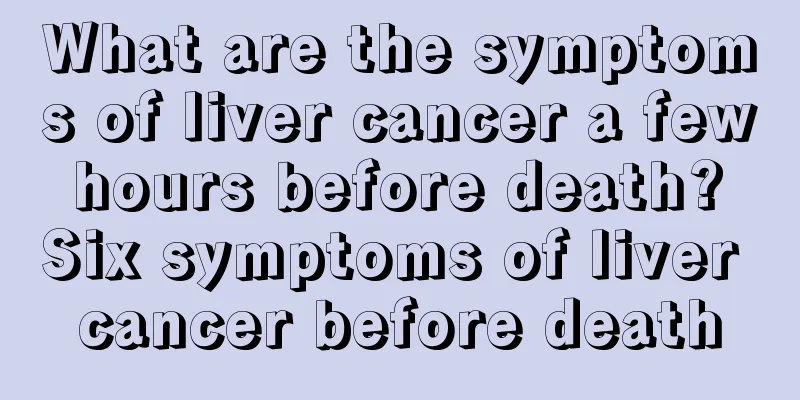Mustard cures rhinitis

|
Mustard is a condiment with a pungent taste. You may not like to eat it normally, but mustard still has certain nutritional value. Mustard has a strong detoxification function and can detoxify fish and crabs, so it is often eaten with salmon. Mustard oil also has the effect of beautifying and nourishing the skin. Mustard can also treat rhinitis. What is the specific method of using mustard to treat rhinitis? Is it really that effective? Let me introduce it to you. Mustard for rhinitis Mustard is pungent and warm in nature, and has the effects of warming the lungs and removing phlegm, unblocking meridians and relieving pain, resolving phlegm and promoting qi, and dispersing nodules and reducing swelling. The properties of mustard can be used to treat rhinitis, especially allergic rhinitis. It is also effective for nasal congestion, runny nose and tears caused by colds. Specific method: Soak mustard in vinegar for several days (if needed urgently, put the mustard in a bowl, then pour in boiling water and simmer for half an hour before use, or use mustard oil instead), mix it with cold dishes such as spinach, cabbage, vermicelli, cucumber, etc., and can also be used to dip dumplings. There are many ways to eat it, each with its own unique flavor, and it works every time. Six dietary taboos for rhinitis 1. Avoid smoking. Allergic rhinitis is significantly more sensitive to external gases, especially cold and irritating gases. After inhalation, symptoms such as sneezing, nasal congestion, and runny nose will be significantly aggravated, so it is advisable to avoid smoking. 2. Avoid eating cold and raw foods. Traditional Chinese medicine believes that this disease is caused by deficiency of qi in the lungs, spleen, and kidneys, coupled with external wind and cold invading the nasal cavity. Cold and raw foods (such as raw and cold fruits, cold water, cold dishes, etc.) are most likely to damage the lung and spleen yang energy and aggravate the symptoms of deficiency and cold. 3. Be cautious when eating milk, eggs, fish, shrimp and crabs. Some people believe that foods such as milk, eggs, shrimp, and crabs are prone to cause allergic reactions, so they should be avoided when suffering from allergic diseases. Avoid beef, coffee-containing beverages, chocolate, citrus juice, corn, dairy products, eggs, oats, cherries, peanuts, salmon, strawberries, cantaloupe, tomatoes, wheat, etc. 4. Avoid spicy food. Such as pepper, mustard, etc., can easily irritate the respiratory mucosa. 5. Avoid eating foods that have been specially processed or refined, especially foods containing yellow pigment No. 5. 6. Avoid eating foods containing food additives such as vanillin, benzaldehyde, linalool, and monosodium hydroxyethyl ester. |
<<: Honeycomb treats allergic rhinitis
>>: Can people with kidney deficiency eat watermelon
Recommend
What to do if the gap between front teeth is too big
Under normal circumstances, it is difficult to se...
How to preserve shallots effectively
Scallions are also a kind of onion. Scallions are...
Pressing the lower abdomen makes me want to urinate
Our bladder is also located under our lower abdom...
Prevention measures for gallbladder cancer
Primary gallbladder cancer is relatively rare in ...
What is the acupuncture point on the belly button called
The belly button is an important part of the huma...
What are the examination items for triple positive?
Hepatitis B is a very terrible infectious disease...
What are the complications of late stage nasopharyngeal carcinoma?
In daily life, if you find symptoms of nasopharyn...
What to do if herpes grows on your lips? Three tips to solve it for you
Many people may know about herpes, which is a ter...
Diagnosis and prevention of contact angular cheilitis
Angular cheilitis is a disease that occurs at the...
What should I do if white clothes turn yellow?
In daily life, white clothes will easily turn yel...
The effects and functions of red guava
Red guava is a variety of pomegranate. It has hig...
What are the treatments for torn knee ligaments?
Many people are not careful during activities, or...
How should lung cancer patients eat? Main dietary considerations for lung cancer patients
Lung cancer is a very serious disease. If the pat...
Sports suitable for teratoma patients
Teratoma is a benign gynecological tumor that end...
The doctor teaches you how to deal with 6 kinds of dental diseases
1. Burns on the roof of the mouth For burns on th...









